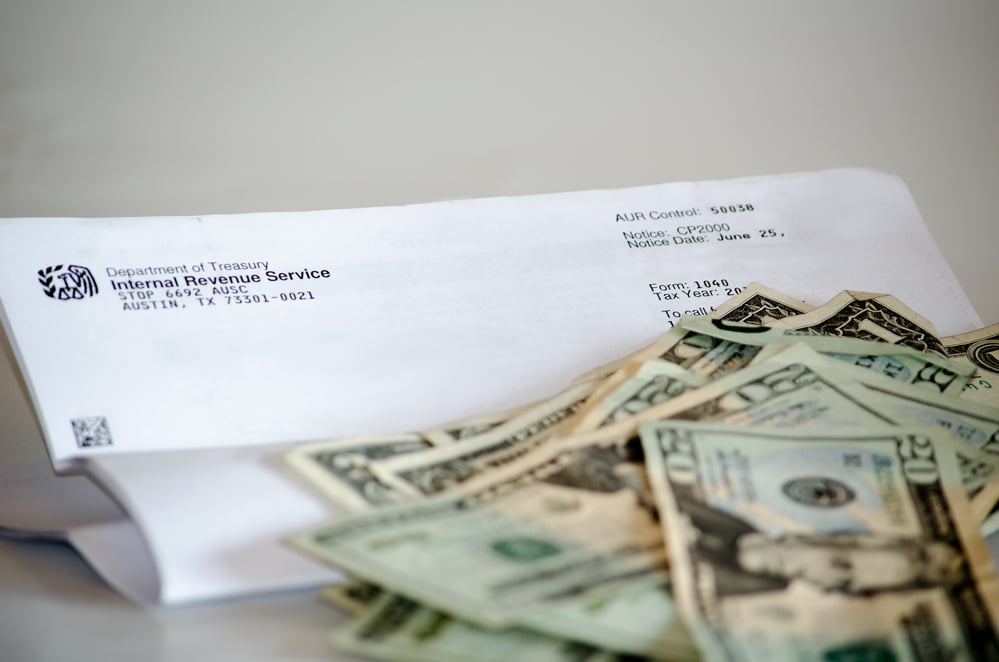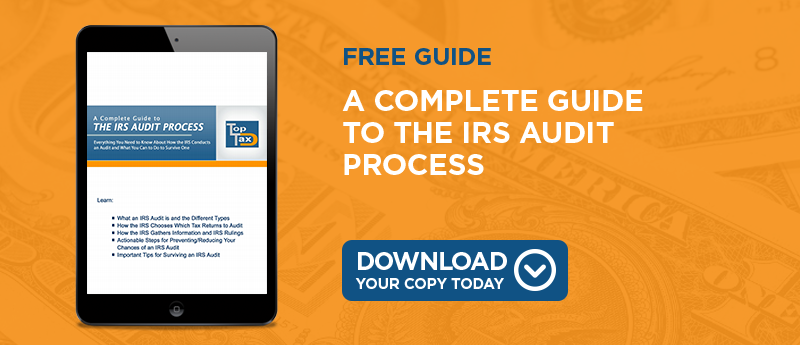
As tax time approaches, your attention inevitably may turn to your risk of being audited. In fact, as a small business owner you could have reason to worry when you consider the small, yet still formidable number of small businesses chosen by the IRS for this dubious recognition each year.
While you arguably have little control over whether your returns get chosen or not, you may wonder how you can minimize the likelihood of your company being selected for auditing. You may possibly avoid a worrisome IRS audit when you utilize these honest approaches to filing your small business' tax returns.
1) File Electronically
E-filing can reduce your chances of being audited. When you file electronically, you have fewer chances of making mistakes on your business returns because the questions you must answer are provided in sequential order by the program you use.
You are less likely to skip a question or put in information in the wrong field. These reduced mistakes allow your returns to be accepted smoothly and helps them avoid being flagged for auditing.
2) Check Your Numbers
Regardless of how you file, you should check your numbers to make sure they coincide with what is provided on your 1099s or other tax documents. In fact, the IRS receives the same documents as you do. If you leave out information, your return could be flagged as suspicious.
Before you hit submit or seal the envelope to mail your return, you should go through the numbers at least once, if not more to make sure they are in line with what is reported on your statements. Making sure that everything is reported accurately will help you avoid an audit.
3) Report Deductions Truthfully
As a business owner, you understand how deductions can help you recoup some of the income you lost during the prior year. However, many business owners take advantage of this opportunity and make false claims in a bid to bulk up their returns. It is these false claims that causes the IRS to regard such returns with suspicion and more likely to audit those owners.
With that, it will work to your favor substantially if you report your deductions honestly. Rather than lie and report a huge charitable donation, you should be honest and report the actual amount, if you donated anything at all to a charity that year.
Likewise, if for some reason you do have a larger than usual deduction to claim, you can avoid being audited by having proof on hand to back up your information. Submitting proof that this expense did indeed occur for your business will substantiate your return and help you avoid the suspicion of the IRS.
4) Explain Unusual Activity
Along with substantiating unusual deductions, you should also provide explanations for other contradictions on your returns. If your information from this year is glaringly different than what you reported last year, you could be flagged for an audit. To help avoid this possibility, you should provide explanations for:
- Name changes
- Fluctuations in reported income
- New dependents, such as a new baby or adopted child
- Business losses
- Higher than normal donations
While none of these details technically are grounds for suspicion, their presence could cause the IRS to take a second look at your return. You can ensure that your return is accepted by providing written explanation of these changes.
5) Keep Records
If you are an independent contractor or accept a lot of cash transactions like tips or bonuses, you raise the likelihood that you will be audited. This type of employment stands out as being high risk for fraud because it can be very easy to avoid reporting cash payments. Cash transactions can also be difficult to document and prove.
Nonetheless, you can strengthen your returns by keeping immaculate records of your independent business and any payments you receive. If a customer pays you in cash, you should give him or her a receipt if possible. If you are a waitress or hair stylist, you should abide by your state's laws for reporting cash tips. Taking these honest approaches can help you avoid being audited.
6) File Later Rather Than Sooner
For many people, the tax season is a boon that gives them a hefty return that they can use to pay bills, buy consumer goods like TVs or cell phones or add money to their savings accounts. In fact, people who need the cash the most often file their taxes as early as possible after the IRS begins accepting returns.
While many people who are hard up for money this time of year are honest on their returns, others have figured out how to bulk up their returns by reporting false information. With that, the IRS is more likely to audit those people who file early rather than those who wait until closer to the April 15 deadline. If you want to improve your chances of not being audited, you should wait until after the filing rush in January and February is over to submit your small business returns.
Honesty is indeed the best policy when it comes to lowering your risk of an IRS audit. These strategies can help you file returns that are accepted easily without being flagged for auditing.




